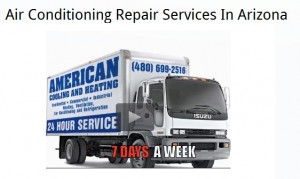Arizona Home Cooling Tips – Insulation Basics To Help You Save on AC Expenses

Cost-Efficient Arizona Home Cooling, The Benefits of Customized Thermal Management
Installing new thermal empowered insulation in your home’s roof, slab, and walls remains among the most cost-efficient methods for reducing the long-term expenses associated with home heating and cooling. Furthermore, the cost savings of additional installed home insulation goes much further than a reduction in your home’s yearly energy consumption. It also helps reduce your yearly air conditioning maintenance bills.
Installing additional R-value to the building envelope of a new construction project is always more cost-efficient than reworking an already finished job. However, even the owners of a home already aged and lived in can find new methods for increasing the existing insulation R-values.
The following tips presented by American Cooling and Heating are designed to help Arizona homeowners learn how to best prevent energy waste on heating and cooling expenses.
The Process of Functional Air Conditioning Differs From Home To Home
No two structures are crafted completely alike. Therefore thermal management must be applied according to the home and the environmental circumstances. Determining what works best at your house can be confusing. So let’s review the various types of thermal insulation, starting with a fundamental look at how heat flow affects home cooling as well as home heating. Herein are some of the benefits that you can gain via additional home insulation.
Understanding airflow:
Hot and cold always seek a natural balance. This means that on the inside of your home, warm air tends to flow toward the cooler spaces. This natural neutralizing effect derives through three distinct processes:
- Conduction – Heat transfers from object to object, thus an attic that lacks sufficient insulation enables exterior heat to transfer into A/C cooled interior of your home
- Convection – Heat rises, thus a ceiling without adequate installed insulation permits interior heat to rise into the attic
- Radiant Heat – Objects that acquire heat will also release that heat, thus a home with radiant barrier windows is easier to cool than a home that lacks such additional preventive measures.
Installed insulation and radiant barriers are designed to keep heat from flowing through the external building envelope of your home. Standard fiberglass insulation is an example of conductive resistance. Tinted windows and duel-pane windows are based upon radiant heat resistance. In the winter these thermal management construction techniques reduce the total heat lost due to external seepage. In the summer these same construction techniques help keep exterior heat from invading your interior air-conditioned comfort zone.
Radiant Barriers, The Cheap and The Expensive
Radiant barriers are used to reflect heat away from your home interior. Some of the radiant thermal management processes offer inexpensive solutions that can be installed by the homeowner. Other radiant barrier solutions such as upgrading your windows to thermal efficient windows can be costly but not excessively expensively. Still other radiant barrier solutions, such as installing a metal roof system, can be very expensive and should only be considered in the event that you are already required to replace your home’s roofing system. The process can include installing a:
- Ventilated metal roof system
![By Jason Dale (Own work) [CC BY-SA 3.0 (http://creativecommons.org/licenses/by-sa/3.0) or GFDL (http://www.gnu.org/copyleft/fdl.html)], via Wikimedia Commons By Jason Dale (Own work) [CC BY-SA 3.0 (http://creativecommons.org/licenses/by-sa/3.0) or GFDL (http://www.gnu.org/copyleft/fdl.html)], via Wikimedia Commons](//upload.wikimedia.org/wikipedia/commons/thumb/6/68/AtticInsulation.jpg/512px-AtticInsulation.jpg)
- Ventilation strip along the roof of your home
- Radiant barrier exterior paint
- Special sheathing
- Attic foil
- Solar screens on the windows
- Internal windows shades
- Window film
- AND More.
Radian barrier home installation techniques can help you curb the invasive Arizona summer heat that so often catapults your home air conditioning energy consumption into a costly upward spiral. Always measure the cost or installation versus the gain in energy savings. You should also weigh in on the value of a comfortable Arizona living environment. Great installed Arizona A/C equipment can only overcome so many shortcomings in installed home insulation and radiant protection. You need to find the balance.
R-Value, The Core In Thermal Management
When describing material effectiveness at managing thermal energy, U.S. manufacturers talk R-values. The greater the R-factor of a given material, the more effective the material’s thermal management properties. Typically the R-value changes according to material thickness. You should also understand that some contractors talk in terms of R-value of a single component of your wall while other contractors talk in terms of the total R-factor as a sum of the components that make up the wall or the attic. The distinction should be obvious so make sure that you and your contractor speak the same R-value language.
Remember: The efficiency of your home’s building envelope may be determined by the weakest link in the R-factor.
Tip: The R-value of glass ranges from 1.4 to 5. Even the best gas filled windows make poor walls.
Factors to consider when determining what you need in material R-value and Radiant factor:
- Typical Arizona climate for your area
- The family budget
- Importance of internal air quality
- Material life cycle versus the original cost of installation and materials
- Whole home versus partial home insulating requirements
- AND… Your installed cooling and heating system.
 American Cooling and Heating provides superior 24/7 Arizona home cooling HVAC services. We are here to help you reap the best benefits available out of your Arizona Air Conditioning system. For additional information, visit our website at https://americancoolingandheating.com.
American Cooling and Heating provides superior 24/7 Arizona home cooling HVAC services. We are here to help you reap the best benefits available out of your Arizona Air Conditioning system. For additional information, visit our website at https://americancoolingandheating.com.
Call us now!
![By Jason Dale (Own work) [CC BY-SA 3.0 (http://creativecommons.org/licenses/by-sa/3.0) or GFDL (http://www.gnu.org/copyleft/fdl.html)], via Wikimedia Commons By Jason Dale (Own work) [CC BY-SA 3.0 (http://creativecommons.org/licenses/by-sa/3.0) or GFDL (http://www.gnu.org/copyleft/fdl.html)], via Wikimedia Commons](http://upload.wikimedia.org/wikipedia/commons/thumb/6/68/AtticInsulation.jpg/512px-AtticInsulation.jpg)